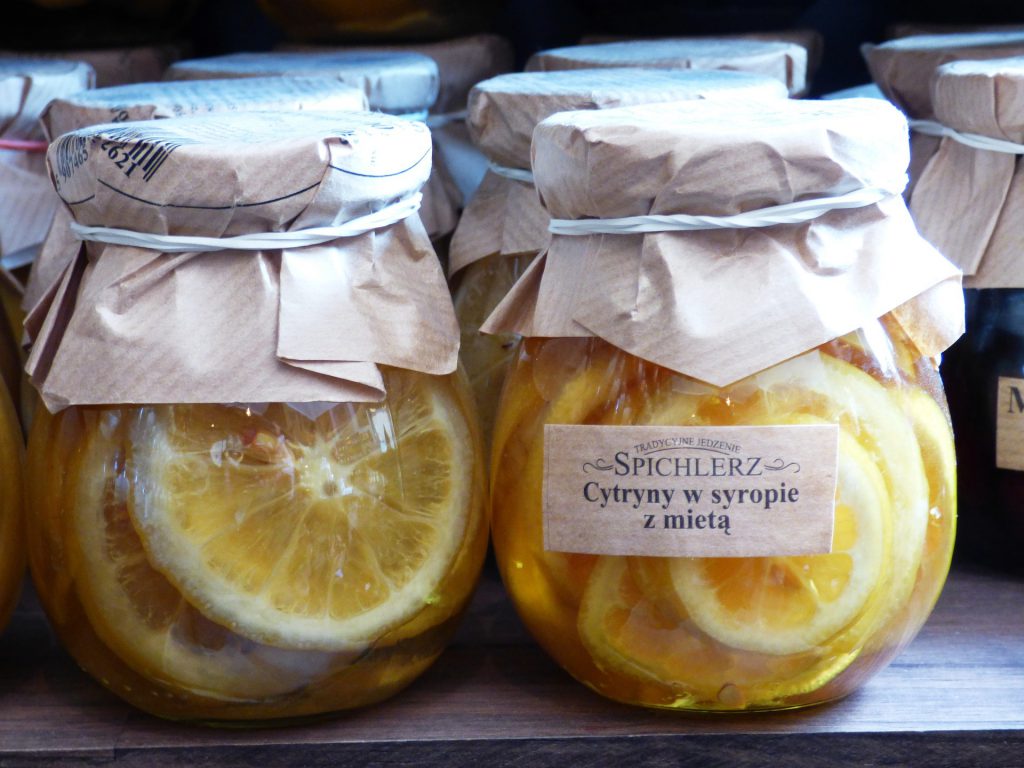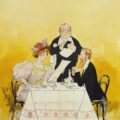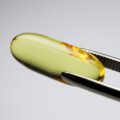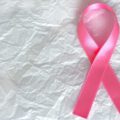Boost immune defense is that possible?
Boost immune defense: is that possible?
- Boost immune defense: is that possible?
- Immune defense: food supplements
- Immune defense: plant substances and extracts
- Echinacea and Cape Geranium
- Nasturtium, horseradish and ginger
- Red ginseng
- Tea to heal and enjoy
- Immune defense: mineral supplements
- Immune defense: vitamins
- Immune defense: niacin and silica
- Immune defense: medicinal mushrooms
- Immune defense: colostrum
- Immune Defense: Cannabidiol (CBD)
- Immune defense: psyche
- Immune Defense: Tips
Immune defense: food supplements
More and more nutritional supplements promise to strengthen the immune system – on the Internet, on social media and also through advertising. It is important to note that, food supplements are essentially foods, and are therefore not suitable to prevent, relieve or treat illnesses. Most of them are neither approved nor checked by authorities.
The SARS-CoV2 has only been known for a relatively short time. At the moment, there are no studies to prove the effectiveness of certain plants, vitamins or minerals. Cited studies usually refer to other (corona) viruses.
In general, the immune system does not have to be stimulated at all. It works very well, except for diseases such as cancer or chronic inflammation. Allergies and autoimmune diseases even, show what damage a hyperactive immune system can do.
Immune defense: plant substances and extracts
It is important to understand, that extracts are not defined in food supplements (in contrast to medicinal products), no extract is like the other, and probably none of them is like the active ingredients used in quoted studies.
Currently you can find immune-strengthening dietary supplements with countless active ingredients on the Internet: Green tea (or the ingredient epigallocatechin agallate EGCG), Rhodiola Aloe vera Chili Horseradish Artemisin Rock rose Propolis Elder Nasturtium Black currant (leaf buds). Ginger Turmeric Cinnamon Apple Cider Vinegar
However, this does not mean that these ingredients are ineffective, or that all suppliers of such products are dubious. There are well-researched, pharmacy-only drugs, e.g. B. from rose root, rock rose or chilli, which are safe and provided with approved indications. Preventive protection against infections, such as even coronaviruses, has not been proven.
Echinacea and Cape Geranium
In a small study (1), an extract from the roots of Echinacea angustifolia was shown to be effective in relieving symptoms associated with influenza or parainfluenza infection. Especially in combination with the corresponding flu shot, the extract was more effective than vaccination alone. The results suggest that Echinacea has a positive effect on immunoglobin (antibody) levels, thereby strengthening the immune system. Cape geranium, on the other hand, was effective in relieving asthma attacks (2) and bronchitis symptoms (3). In particular, the cough stimulus decreased in the subjects in both studies.
Nasturtium, horseradish and ginger
There is a herbal medicine for acute sinusitis, bronchitis or cystitis: Goos et al. showed in two studies (4, 5) that treatment with a medicinal herb nasturtium and horseradish is not inferior to standard therapy. When infections start, the ginger root is also useful. The warming, stimulating effect of ginger is well known and its anti-inflammatory effects have been studied (6).
Red ginseng
In a laboratory test on human lung cells and mice (!), Red ginseng extract was shown to be a potent agent against influenza A viruses (7, 8). In both cell and animal experiments, the plant extract inhibited inflammatory processes and activated the immune system’s defense function. In addition, ginseng slowed down the spread of the flu virus in the cells. However, it cannot be concluded that red ginseng can alleviate an existing flu infection, or even prevent it. The ginseng root has long been used in the Asian healing system – however, a scientific test on humans is still pending.
Tea to heal and enjoy
A cup of tea mainly provides relief, enjoyment or relaxation, which is why herbal teas are the oldest forms of medicine. A small study (9) examined the effects of regular intake of green tea over a period of seven days. A reinforcing effect was found on enzymes that are responsible for DNA repair. However, this says nothing about the course of the disease. A rock rose extract is an alternative to green tea (10, 11).
Immune defense: mineral supplements
Certain minerals such as selenium, zinc, iron and copper are important for a normal immune system. A supplementary intake is nonetheless only necessary if there was a – comparatively rare – deficit. A source of hope is zinc though. (14) Taking multivitamins and nutritional supplements with minerals cannot, however, be generally recommended due to the still contradictory study situation – see above. (15) An excess of mineral products usually has no proven effect on the course of respiratory infections and, in the worst case, disrupts the fine control circuits in the body.
Nonsense is the dangerous MMS (Miracle Mineral Supplement), sometimes also called CDL (chlorine dioxide solution), which is supposed to protect against coronavirus. This is a disinfectant and is used to bleach textiles! The intake is dangerous.
This also applies to arsenic in homeopathic doses.
For a lot of money (approx. 130 € / l) a DTX drink is offered, which consists of various Bavarian spring and glacier waters as well as salts from eleven countries. Among other things, it should “fight viruses and bacteria successfully and immediately”. You can either drink it or inhale it. Neither spring water nor salts have a proven effect against infections.
Immune defense: vitamins
Vitamin D, vitamin C, but also folate, B12, B6 and vitamin A have been scientifically proven to contribute to the normal functioning of the immune system. However, this does not mean that especially large amounts or even high-dose supplements are now necessary, especially if there is no lack of vitamins. . Recommendations such as “Now 5,000 IU of vitamin D daily” (= 125 µg) are dangerous, as this is more than the absolute upper limit for a safe intake (upper intake level). The Federal Institute for Risk Assessment even recommends not more than 20 µg (= 800 i.E.) vitamin D per day.
According to the German Society for Nutrition, a good vitamin D supply is best achieved through the skin’s own synthesis and through nutrition. Supplements should only be taken if this is not sufficient.
Consider even “normal” blood test levels with caution. They are often relatively arbitrary, and which deviation from the average values leads to which health consequences is only well researched for vitamin deficiency diseases (e.g. scurvy and Beri Beri) and those vitamins that can accumulate in the body and lead to poisoning: A, D, E and K. If you really need a supplement, make sure you use a safe dosage.
BfR recommendations for dietary supplements for adults:
| Vitamins | Maximum daily dose |
| A | 200 micrograms (µg) |
| C | 250 mg |
| D | 20 µg |
| E (Tocopherol) | 30 mg |
| K3 | 80 µg |
| B1 (Thiamine) | not mandatory |
| B2 (Riboflavin) | not mandatory |
| Niacin (B3)2 | 160 mg / pregnant woman 16 mg |
| B6 (Pyridoxine) | 3,5 mg |
| Folic acid | 200 µg / pregnant woman1 400 µg |
| Pantothenic acid (B5) | not mandatory |
| Biotin | not mandatory |
| B12 (Cobalamin) | 25 µg |
1 The amount for pregnant women is already recommended with just the desire to have children.
2 When using nicotinic acid 4 mg
3 When taking anticoagulant medication, only consume after consultation with your doctor
Immune defense: niacin and silica
At the beginning of April, the University Medical Center Schleswig-Holstein (UKSH), Campus Kiel, started a nationwide study for the treatment of COVID-19 diseases with high-dose vitamin B3 (niacin) or silica. It is to be investigated whether the administration of one of these nutrients can alleviate severe illnesses in humans. This does not mean that it can prevent infection.
Immune defense: medicinal mushrooms
So-called medicinal mushrooms such as Reishi or Cordyceps are also considered to strengthen the immune system. Since all studies were carried out with certain mushroom preparations, no conclusions can be drawn from them for individual dietary supplements with a different composition.
Immune defense: colostrum
Colostrum, i.e. beastings (first milk) from cows, has always been advertised as immune-boosting. It is said to offer protection against viral and bacterial infections. There are not even animal studies for an effect on corona viruses. (The effectiveness of orally ingested colostrum on respiratory infections (including COVID-19) is not even plausible, because no antibodies contained in the intestine are absorbed, and consequently they cannot reach the lungs.
Immune Defense: Cannabidiol (CBD)
In the current pandemic, providers are not afraid to offer the CBD, which is not permitted as a food or nutritional supplement, as an aid against corona. Although not curing any COVID-19 patients, it would allegedly strengthen the so-called endocannabinoid system, as a so-called cannabinoid receptor (CB2) is found on cells of the immune system. However, the presence of a receptor on immune cells does not allow the assumption that the endocannabinoid system is strengthened in any way by CBD. There is even less grounds for the assumptive influence on viral infections through this “strengthening”.
Immune defense: psyche
The vegetative nervous system transmits messages between the body and the brain. When there is acute stress, the brain triggers the release of ithe stress hormone cortisol from the adrenal glands. This in turn alarms the unspecific immune system of the body’s first line of defense. Without distinction, it inactivates all intruders like bacteria, viruses and fungi. The coupling of stress and immune defense makes sense in terms of evolutionary biology, because dangerous situations for living beings were associated with an increased risk of injury and thus the risk of pathogens entering the body.
Chronic stress, on the other hand, has a different effect: permanently increased cortisol in the blood blocks the release of activating messenger substances from white blood cells and the formation of antibodies that specialize in certain pathogens. This reduces the effectiveness of the immune system. Susceptibility to colds and herpes or poor wound healing are the telling signs.
Stress relief therefore strengthens the immune system. Exercise, for example, lowers blood cortisol levels. Targeted relaxation techniques, such as autogenic training, progressive muscle relaxation or mindfulness exercises, also support the immune system.
Negative feelings weaken the immune system just as much as chronic stress. Depression or anxiety make us more susceptible to infections and aggravate allergies or autoimmune diseases such as rheumatoid arthritis and inflammatory bowel diseases.
It is believed that mentally stable people have more natural killer cells in their blood, which track down pathogens and render them harmless. In contrast, positive emotions can strengthen the immune system in such a way that they even improve the chances of curing cancer. Learning a relaxation exercise reduces the frequency of asthma attacks, relieves neurodermatitis and hay fever.
Mind body medicine, a combination of tai chi, qi gong, meditation, yoga and relaxation procedures, has, according to a current meta-analysis (23), only a minor effect on the immune system.
People who take situations more easily with humor and laugh more often could be better protected from infections than overly serious test subjects. However, this approach is still in its infancy and further studies are required to be able to make more precise statements. (24)
Immune Defense: Tips
- It is best to move outdoors a lot, go for a walk and let the sun shine on your skin (if need be, even just on the balcony or by the open window). This stimulates the body’s own vitamin D production. Being dressed, fifteen minutes outdoors a day are enough for a sufficient synthesis of vitamin D in the body!
- A regularly used training program, including stretching (10 min. to warm up) and running (40 min.), three times a week over a period of 10 months, improves the defense against infections (25).
- Eat plenty of vegetables and fruits. They supply vitamins and minerals in a balanced ratio and in a form that is easy to use.
- If you go on a vegan phase and eat fresh fruits and vegetables, legumes, nuts and grains, you reduce your risk of inflammation (12). The exotic aronia berry (13) is particularly recommended.
- A healthy intestinal flora is a prerequisite for a strong immune system. Lactobacillus casei (L. casei) (17), which is contained in yoghurt, supports healthy bowel microbiome.
- Drink enough. Dry mucosal membranes are a gateway for viruses.
- Get enough sleep. After sufficient exercise, one usually sleeps better, and restful sleep in turn helps the body to strengthen and regenerate.
Sources:
https://www.carstens-stiftung.de/artikel/top-10-was-tun-bei-infektanfaelligkeit.html
1) Di Pierro F, Rapacioli G, Ferrara T, Togni S. Use of a standardized extract from Echinacea angustifolia (Polinacea) for the prevention of respiratory tract infections. Altern Med Rev. 2012 Mar;17(1):36-41. Abstract
2) Tahan F, Yaman M. Can the Pelargonium sidoides root extract EPs® 7630 prevent asthma attacks during viral infections of the upper respiratory tract in children? Phytomedicine. 2013 Jan 15;20(2):148-50. doi: 10.1016/j.phymed.2012.09.022. Epub 2012 Nov 8. Abstract
3) Kamin W, Ilyenko LI, Malek FA, Kieser M. Treatment of acute bronchitis with EPs 7630: randomized, controlled trial in children and adolescents. Pediatr Int. 2012 Apr;54(2):219-26. doi: 10.1111/j.1442-200X.2012.03598.x. Abstract
4) Goos KH, Albrecht U, Schneider B. Wirksamkeit und Verträglichkeit eines pflanzlichen Arzneimittels mit Kapuzinerkressenkraut und Meerrettich bei akuter Sinusitis, akuter Bronchitis und akuter Blasenentzündung im Vergleich zu anderen Therapien unter den Bedingungen der täglichen Praxis. Ergebnisse einer prospektiven Kohortenstudie. Arzneimittelforschung 2006; 56(3): 249-257. DOI: 10.1055/s-0031-1296717 Abstract
5) Goos KH, Albrecht U, Schneider B. Aktuelle Untersuchungen zur Wirksamkeit und Verträglichkeit eines pflanzlichen Arzneimittels mit Kapuzinerkressenkraut und Meerrettich bei akuter Sinusitis, akuter Bronchitis und akuter Blasenentzündung bei Kindern im Vergleich zu anderen Antibiotika. Arzneimittelforschung 2007; 57(4): 238-246. DOI: 10.1055/s-0031-1296611 Abstract
6) Tripathi S, Bruch D, Kittur DS. Ginger extract inhibits LPS induced macrophage activation and function. BMC Complement Altern Med. 2008 Jan 3;8:1. doi: 10.1186/1472-6882-8-1. Abstract
7) Jong Seok Lee, Hye Suk Hwang, Eun-Ju Ko, Yu-Na Lee, Young-Man Kwon, Min-Chul Kim, Sang-Moo Kang. Immunomodulatory Activity of Red Ginseng against Influenza A Virus Infection. Nutrients. 2014 Feb; 6(2): 517–529. Published online 2014 Jan 27. doi: 10.3390/nu6020517 Abstract
8) Roter Ginseng stärkt das Immunsystem. Wurzelextrakt zeigte sich im Laborversuch erfolgreich gegen Grippeviren. Carstens-Stiftung, 02.10.2014 Abstract
9) Ho CK, Choi SW, Siu PM, Benzie IF. Effects of single dose and regular intake of green tea (Camellia sinensis) on DNA damage, DNA repair, and heme oxygenase-1 expression in a randomized controlled human supplementation study. Mol Nutr Food Res. 2014 Jun;58(6):1379-83. doi: 10.1002/mnfr.201300751. Epub 2014 Feb 28. Abstract
10) Kalus U, Grigorov A, Kadecki O, Jansen JP, Kiesewetter H, Radtke H. Cistus incanus (CYSTUS052) for treating patients with infection of the upper respiratory tract. A prospective, randomised, placebo-controlled clinical study. Antiviral Res. 2009 Dec;84(3):267-71. doi: 10.1016/j.antiviral.2009.10.001. Epub 2009 Oct 12. Abstract
11) Kalus U, Kiesewetter H, Radtke H. Effect of CYSTUS052® and green tea on subjective symptoms in patients with infection of the upper respiratory tract. Phytotherapy Research Volume 24, Issue 1, pages 96–100, January 2010. Article first published online: 14 MAY 2009. DOI: 10.1002/ptr.2876 Abstract
12) Sutliffe JT, Wilson LD, de Heer HD, Foster RL, Carnot MJ. C-reactive protein response to a vegan lifestyle intervention. Complement Ther Med. 2015 Feb;23(1):32-7. doi: 10.1016/j.ctim.2014.11.001. Epub 2014 Dec 3. Abstract
13) Kardum N, Konić-Ristić A, Savikin K, Spasić S, Stefanović A, Ivanišević J, Miljković M. Effects of polyphenol-rich chokeberry juice on antioxidant/pro-oxidant status in healthy subjects. J Med Food. 2014 Aug;17(8):869-74. doi: 10.1089/jmf.2013.0135. Epub 2014 Mar 20. Abstract
14) Arnaud J, Manuguerra JC, Herchberg S. Impact of trace elements and vitamin supplementation on immunity and infections in institutionalized elderly patients: a randomized controlled trial. MIN. VIT. AOX. geriatric network. Arch Intern Med. 1999 Apr 12;159(7):748-54. Abstract
15) El-Kadiki A, Sutton AJ. Role of multivitamins and mineral supplements in preventing infections in elderly people: systematic review and meta-analysis of randomised controlled trials. BMJ. 2005 Apr 16;330(7496):871. Epub 2005 Mar 31. Abstract
16) Lohner S, Küllenberg D, Antes G, Decsi T, Meerpohl JJ. Prebiotics in healthy infants and children for prevention of acute infectious diseases: a systematic review and meta-analysis. Nutr Rev. 2014 Aug;72(8):523-31. doi: 10.1111/nure.12117. Epub 2014 Jun 5. Abstract
17) Gleeson M, Bishop NC, Oliveira M, Tauler P. Daily probiotic’s (Lactobacillus casei Shirota) reduction of infection incidence in athletes. Int J Sport Nutr Exerc Metab. 2011 Feb;21(1):55-64. Abstract
18) Pach D, Knöchel B, Lüdtke R, Wruck K, Willich SN, Witt CM. Visiting a sauna: does inhaling hot dry air reduce common cold symptoms? A randomised controlled trial. Med J Aust. 2010 Dec 6-20;193(11-12):730-4. Abstract
19) Mit Winterbekleidung in die Sauna. Lindert das Inhalieren heißer Luft Erkältungssymptome? Carstens-Stiftung, 22.07.2011 Abstract
20) Oberguss. Heilen mit Wasser, Zugriff am 12.08.2015 Abstract
21) Goedsche K, Förster M, Kroegel C, Uhlemann C. Serielle Kaltwasserreize (Kneipp’scher Oberguss) bei Patienten mit chronisch obstruktiver Bronchitis (COPD). Forsch Komplementärmed 2007;14:158-166 (DOI:10.1159/000101948) Abstract
22) Stein C. Prospektive, klinische Studie zum Einfluss serieller Kaltwasserreize (Kneippscher Oberguss) auf die Lungenfunktion, die Immunabwehr und das subjektive Wohlbefinden bei gesunden Probanden. Medizinischen Fakultät der Friedrich – Schiller – Universität Jena, 2010 Abstract
23) Morgan N, Irwin MR, Chung M, Wang C. The effects of mind-body therapies on the immune system: meta-analysis. PLoS One. 2014 Jul 2;9(7):e100903. doi: 10.1371/journal.pone.0100903. eCollection 2014. Abstract
24) Bennett MP, Lengacher C. Humor and Laughter May Influence Health IV. Humor and Immune Function. Evid Based Complement Alternat Med. 2009 Jun; 6(2): 159–164. Published online 2007 Dec 5. doi: 10.1093/ecam/nem149 Abstract
25) Hur S, Han GS, Cho BJ. Changes in Glucose, TNF-α and IL-6 Blood Levels in Middle-aged Women Associated with Aerobic Exercise and Meditation Training. J Phys Ther Sci. 2014 Dec;26(12):1933-6. doi: 10.1589/jpts.26.1933. Epub 2014 Dec 25. Abstract
26) Wie Pseudomedizin gegen das neue Coronavirus beworben wird. Stand: 02.03.2020
27) Die Einnahme von Chlordioxid hilft nicht gegen das neue Coronavirus. Stand: 07.02.2020
28) Backes, Gunda (2019): Kokosöl in der Ernährung. DGE Info 09/2019, S. 133-136
Lockyer S, Stanner S (2016): Facts Behind the Headlines: Coconut oil – a nutty idea? Nutrition Bulletin 41 (1): 42-54
29) Doctors refute misleading online claim that consuming boiled ginger can cure novel coronavirus infections. Stand: 16.02.2020
30) Coronavirus disease (COVID-19) advice for the public: Myth busters.Stand: 09.03.2020
31) BMEL-Pressemitteilung Nr. 51 vom 20.03.2020: Coronavirus: Bundesernährungsministerium warnt vor Nahrungsergänzungsmitteln mit irreführenden Angaben
32) BMEL-Pressemitteilung Nr. 67 vom 20.04.2020: Bundesministerium warnt erneut vor Nahrungsergänzungsmitteln mit irreführenden Angaben zu COVID-19
33) U.S. Food and Drug Administration: Beware of Fraudulent Coronavirus Tests, Vaccines and Treatments. Stand: 24.03.2020
34) Trotz Kontaktverbot können Sie jetzt etwas für Ihren Vitamin D-Haushalt tun. DGE aktuell 05/2020 vom 26.03.2020
35) Gefährliche Falschaussagen: Mit Energiesymbol, Wasserkrug und Bircher-Müsli gegen Covid-19? Stand: 27.03.2020
36) Schützt Colostrum vor Corona-Viren? Stand: 30.03.2020
38) Kuhrt N, Feldwisch-Drentrup H: Falschnachrichten zu Covid-19. „Die Misstrauenskommunikation funktioniert“






